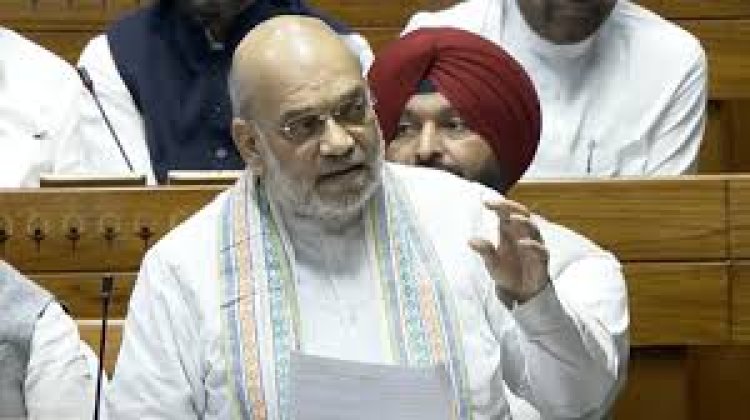Lok Sabha’s Midnight Drama: Waqf Amendment Bill Clears with 288-232 Vote
Opposition Objects, Government Pushes Through Landmark Waqf Law

Lok Sabha Passes Waqf Amendment Bill After Midnight Showdown
New Delhi - In a dramatic late-night session that extended until 2 AM, the Lok Sabha passed the Waqf (Amendment) Bill, 2025, with a vote count of 288 in favor and 232 against. The contentious bill, presented by Minority Affairs Minister Kiren Rijiju, aims to bring significant changes to the management of Waqf properties in India. Additionally, the Muslim Waqf (Repeal) Bill, 2024, which annuls the Muslim Waqf Act of 1923, was also passed by voice vote.
Key Highlights

Fact File: Waqf Amendment Bill, 2025
| Key Changes | Opposition’s Stand | Government’s Justification |
|---|---|---|
| Two non-Muslim members in Waqf Boards | Undermines Waqf autonomy | Increases transparency |
| Repeal of 1923 Waqf Act | Violates minority rights | Removes outdated provisions |
| Enhanced government oversight | State interference in religious affairs |
Opposition’s Protest & Vote Split
As Kiren Rijiju tabled the bill for discussion, opposition members demanded a division of votes. The bill ultimately passed with a margin of 56 votes, despite a last-minute uproar over access to the voting lobby. Lok Sabha Speaker Om Birla clarified that the New Parliament Building’s entry restrictions were uniformly applied.
Key Amendments & Opposition Rejection
The inclusion of two non-Muslim members in Waqf Boards faced resistance, with RSP MP N.K. Premachandran’s amendment failing at 231-288.
All other opposition-proposed amendments were rejected via voice vote.
Three government-backed amendments were approved, adding Sections 4A and 15A to the bill.
Owaisi Tears Up Bill in Protest
AIMIM chief Asaduddin Owaisi strongly opposed the bill, calling it an attack on the autonomy of Waqf Boards. In a dramatic gesture, he tore a copy of the bill in the House.

Government’s Stand
Kiren Rijiju defended the bill, stating that it ensures transparency and accountability in managing Waqf properties. He emphasized that the legislation will benefit millions of underprivileged Muslims and prevent the misuse of Waqf assets.
Home Minister’s Intervention
Union Home Minister Amit Shah intervened in the debate, accusing the opposition of misleading the Muslim community. He reaffirmed that the bill does not infringe on religious rights and cited previous reforms, such as the abrogation of Article 370 and the Citizenship Amendment Act, as examples of the government’s commitment to national development.

 BNH NETWORK
BNH NETWORK 










